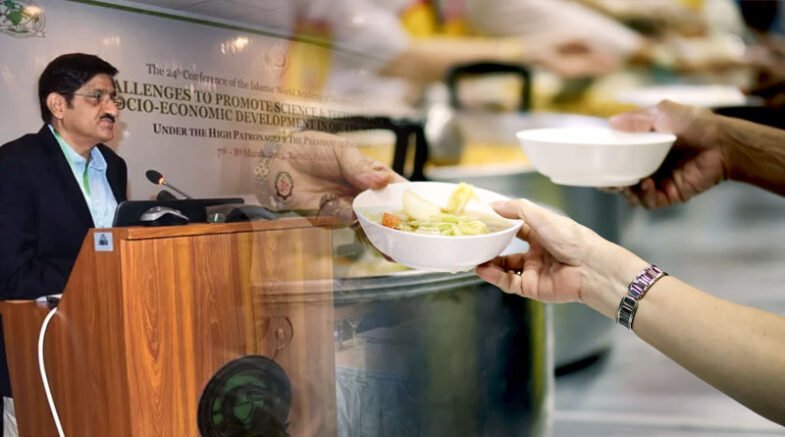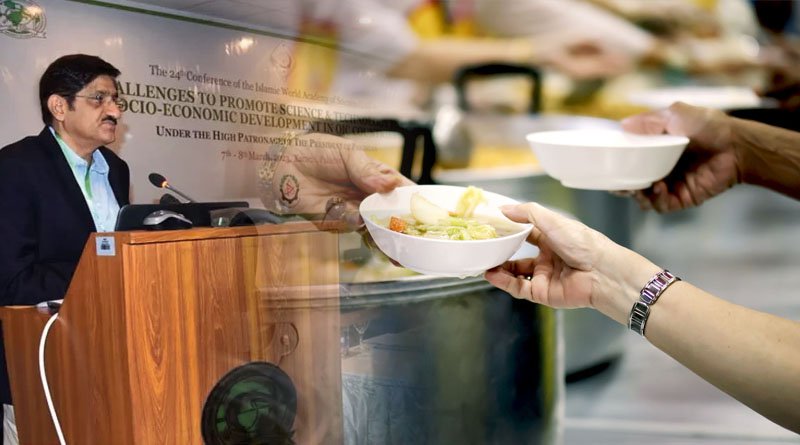The chief minister of Sindh asserted that the conference reflected the Muslim Ummah’s growing commitment to using science and technology for human welfare.

The chief minister of Sindh, has asserted that the persistent issues of poverty, food insecurity, and climate change in the Muslim world can be effectively addressed by science and technology.
At the University of Karachi’s inaugural ceremony for the 24th Scientific Conference of the Islamic World Academy of Sciences, which was themed “Challenges to Promote Science and Technology for Socio-Economic Development in OIC Countries,” he made this statement.
The significant scientific event, according to CM, was a significant step towards a better understanding of how science and technology can be used to effectively address long-standing issues with poverty, food insecurity, and climate change in the Muslim world.
He asserted that the conference reflected the Muslim Ummah’s growing commitment to using science and technology for human welfare. Being a licenced engineer, the CM claimed to be acutely aware of the value of scientific and technological research.
“We can only handle the persistent problems of poverty, climate change, food insecurity, and rising disease burdens, that the world faces today, through the applications of science and technology,” he said, adding that in addition to resolving many local issues, we must also work with other countries to address global problems.
CM expressed his satisfaction at the constant efforts made by our research institution, the International Center for Chemical and Biological Sciences, to improve its capabilities and human resources for cutting-edge study and graduate education in the chemical, biomedical, and biochemical sciences.
The centre, he continued, was a prime illustration of the strong commitment Pakistan’s private sector, national and provincial governments, foreign donors, and scientists and researchers had made to the country’s development on science and technology.
The CM claimed that his administration has made the ICCBS the focal point of all of its initiatives involving science and technology.
The establishment of research centres, the upgrading of the province’s current laboratory infrastructure, and the investigation of some of the province’s ongoing health and agricultural problems are all being conducted in close collaboration with the ICCBS management, he said.
He continued by saying that the establishment of the Traditional Medicine Research Center, the upgrading of the Chemico-bacterial lab in Karachi, and the Sindh Serology and DNA Forensic lab were the institutions where ICCBS was assisting the provincial government.
CM expressed his happiness at learning that the ICCBS, which connected the top universities in Sindh through the SIREN (Sindh Innovation, Research, and Education Network), had carried out his idea of creating a seamless learning platform for universities.
In addition, five ICCBS centres have been designated as Sindh Health Care Research Facilities in areas like pharmaceutical research, disease genomics, and regenerative medicine, he added.
Speaking to the media, the CM claimed that his administration had tripled the annual grant given to public universities. However, he added, “his government’s public-private partnership initiative has yielded the best results in the education and health sectors.
The conference was attended by the President of The World Academy of Sciences Prof. Dr. Adnan Badran, Prof. Dr. Atta-ur-Rahman, Coordinator General COMSTECH Prof. Dr. Muhammad Iqbal Choudhary, Vice Chancellor Karachi University & Patron-in-Chief of International Center for Chemical and Biological Sciences (ICCBS) Prof. Dr. Khalid Mahmood Iraqi, Chairman Hussein Ebrahim Jamal Foundation Mr. Aziz Latif Jamal, Chairperson Dr. Panjwani Memorial Trust Ms. Nadira Panjwani and Foreign and Local Delegates.
